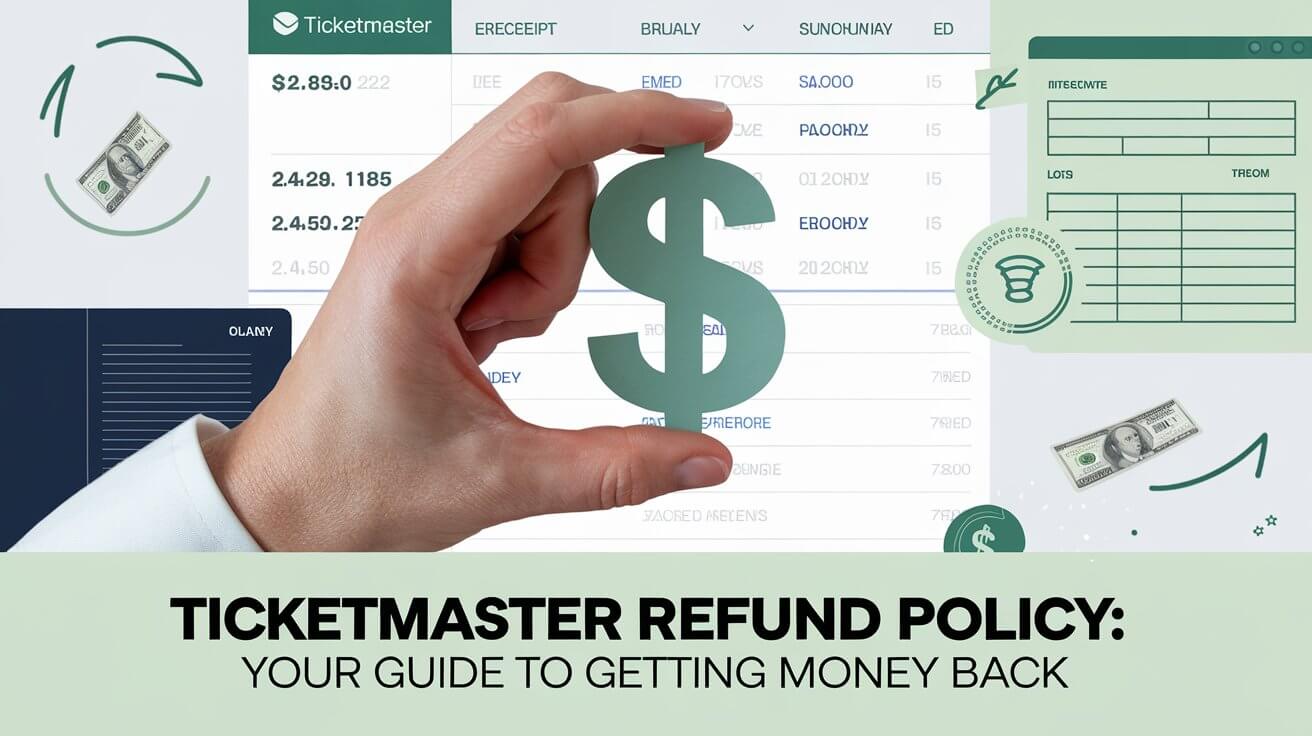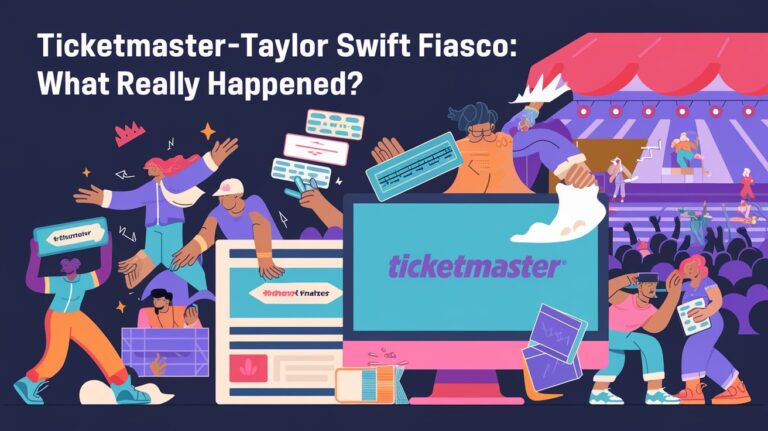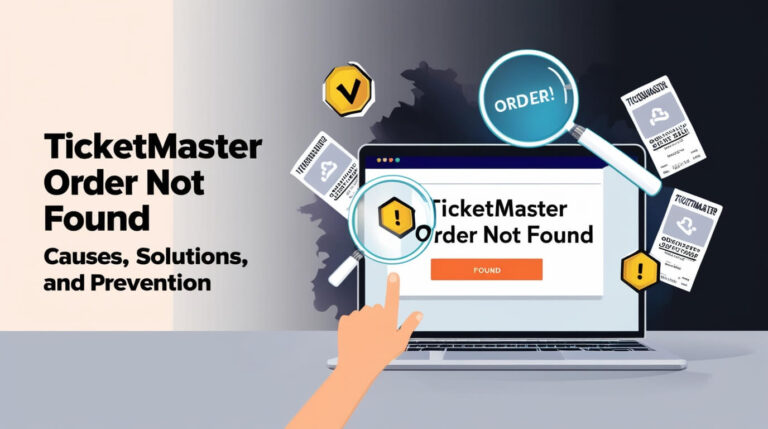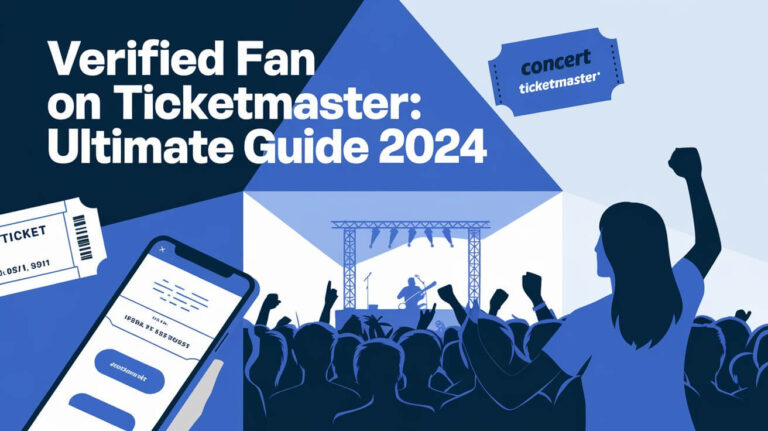
Ticketmaster’s refund policy allows for refunds on canceled events, with some exceptions for postponed or rescheduled shows. Refunds typically process within 30 days, though timeframes can vary.
Buying tickets for your favorite concert or sports event is exciting, but sometimes plans change. That’s where Ticketmaster’s refund policy comes into play. This guide breaks down the ins and outs of getting your money back when things don’t go as planned.
Overview of Ticketmaster’s Refund Policy
Ticketmaster’s refund rules can seem complex at first glance. Let’s simplify things.
General refund rules
The basic principle is straightforward: if an event gets canceled, you’re eligible for a refund. However, for postponed or rescheduled events, the situation gets a bit trickier.
Ticketmaster typically processes refunds to your original payment method. This means if you paid with a credit card, that’s where your money will return.
Exceptions to the standard policy
Not all tickets fall under the same refund rules. Some events, especially those organized by major sports leagues or festivals, might have their own policies. Always check the specific event details when you buy your tickets.
Refunds for Canceled Events
When your much-anticipated show gets canceled, here’s what you need to know about getting your money back.
How cancellation refunds work
For canceled events, Ticketmaster usually initiates the refund process automatically. You don’t need to jump through hoops or fill out lengthy forms. The company aims to make this process as smooth as possible for disappointed fans.
Timeframes for receiving your money back
Patience is key when waiting for your refund. While Ticketmaster strives to process refunds quickly, it can take up to 30 days for the money to appear in your account. This timeframe can vary based on your bank and the event organizer.
Postponed and Rescheduled Events
Life happens, and sometimes events don’t go on as planned. Here’s how Ticketmaster handles these situations.
Your options when an event is postponed
When an event gets postponed without a new date, Ticketmaster usually holds off on refunds. They encourage ticket holders to hang onto their tickets, which will remain valid for the new date. However, some organizers may offer refunds even for postponements.
Refund process for rescheduled events
For rescheduled events, your tickets typically remain valid for the new date. If you can’t make it, you might be able to request a refund, but this depends on the event organizer’s policy. Always check your email for updates on rescheduled events.
The Fan Guarantee and 24-Hour Refund Window
Ticketmaster offers some buyer protections to give you peace of mind when purchasing tickets.
How the Fan Guarantee works
The Fan Guarantee ensures you’ll get valid tickets in time for the event. If something goes wrong, Ticketmaster promises to make it right, whether through comparable or better tickets or a full refund.
Limitations of the 24-hour refund option
Some events offer a 24-hour refund window. This lets you change your mind within a day of purchase. However, not all tickets have this option, so check before you buy if this feature is important to you.
Refunds for Resale Tickets
Buying from Ticketmaster’s resale platform? The refund policy works a bit differently.
Policies for tickets bought on Ticketmaster’s resale platform
Resale tickets often have stricter refund policies. If an event is canceled, you’ll still get a refund. But for postponements or rescheduling, you might have fewer options.
Special rules for Illinois and New York events
Illinois and New York have specific laws protecting ticket buyers. For events in these states, you might have additional refund rights, even for resale tickets.
Ticket Insurance and Its Impact on Refunds
Consider ticket insurance for extra protection on your purchase.
Benefits of purchasing ticket insurance
Ticket insurance can cover you if you can’t attend due to illness, job loss, or other unforeseen circumstances. It’s an extra cost, but it might give you peace of mind for expensive tickets.
Refund process with insurance
If you need to use your ticket insurance, you’ll typically deal with the insurance provider, not Ticketmaster. Keep all relevant documentation to support your claim.
Non-Refundable Items and Fees
Not everything on your ticket order is refundable. Let’s break it down.
Service fees and their refundability
Ticketmaster’s service fees are usually non-refundable, even for canceled events. These fees cover the cost of Ticketmaster’s services.
Other non-refundable charges
Delivery fees, if you chose physical ticket delivery, are typically non-refundable. Any merchandise purchased with your tickets also falls under a separate refund policy.
How to Request a Refund from Ticketmaster
Need to ask for your money back? Here’s how to do it.
Step-by-step guide to the refund process
- Log into your Ticketmaster account
- Find your order in the “My Tickets” section
- Look for a “Request Refund” button (if available)
- Follow the prompts to complete your request
Common issues and how to resolve them
If you don’t see a refund option, the event might not be eligible. Contact Ticketmaster’s customer service for help. Remember, patience is key – refund eligibility can take time to update in the system.
Refund Options: Credit vs. Cash Back
Sometimes, you’ll have a choice between a refund to your original payment method or a credit for future purchases.
Pros and cons of credit refunds
Credits often process faster and might come with a bonus amount. However, they tie you to future Ticketmaster purchases and usually have an expiration date.
When to choose cash refunds
If you’re unsure about buying more tickets soon, or if you need the money for other purposes, a cash refund is usually the better choice.
Ticketmaster’s COVID-19 Refund Policies
The pandemic changed many aspects of live events, including refund policies.
Changes implemented due to the pandemic
During the height of COVID-19, Ticketmaster expanded its refund policies for many postponed events. They also improved their digital ticket options to reduce physical contact.
Current status of COVID-related refunds
As of 2023, most COVID-specific policies have ended. However, Ticketmaster continues to prioritize safety and flexibility in their ticketing practices.
Tips for Protecting Your Ticket Purchase
Smart buying habits can save you headaches later.
Best practices when buying tickets
- Double-check event details before purchasing
- Consider ticket insurance for high-value purchases
- Keep your Ticketmaster account information up to date
- Save all confirmation emails
What to do if you can’t attend an event
If you can’t make it to an event, look into Ticketmaster’s ticket transfer or resale options. These can be better alternatives to seeking a refund, especially for non-refundable tickets.
Comparing Ticketmaster’s Policy to Other Vendors
How does Ticketmaster stack up against the competition?
How Ticketmaster compares to competitors
Ticketmaster’s policies are generally in line with industry standards. However, they often have more robust systems for handling large-scale events and last-minute changes.
Industry standards for ticket refunds
Most major ticket vendors offer refunds for canceled events. Policies for postponements and rescheduling vary widely across the industry.
Legal Aspects of Ticketmaster’s Refund Policy
Understanding your rights as a consumer can help you navigate refund situations.
Consumer rights and ticket refunds
In the US, your rights regarding ticket refunds can vary by state. Some states have laws requiring refunds under certain circumstances, while others leave it largely up to the vendor’s policy.
Recent legal challenges to Ticketmaster’s policies
Ticketmaster has faced lawsuits over its refund policies, especially during the COVID-19 pandemic. These challenges have led to some policy adjustments over time.
Conclusion
Ticketmaster’s refund policy aims to balance fairness to consumers with the needs of event organizers. While it’s not perfect, understanding the ins and outs can help you make informed decisions when buying tickets. Remember, always read the fine print, consider your options carefully, and don’t hesitate to reach out to customer service if you have questions. With this knowledge in hand, you’re better equipped to handle whatever comes your way in the world of live events.






